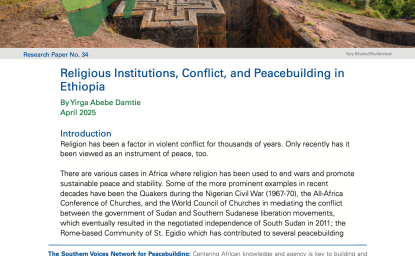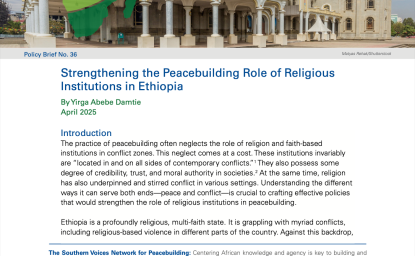I
n Africa and around the world, 2024 has been known as the year of elections. It may also be remembered on the continent as a year of deepening impunity. Nineteen African presidential elections were on the docket at the beginning of the year. Yet authorities in five of these countries—Burkina Faso, Guinea, Guinea Bissau, Mali, and South Sudan—failed to even hold the polls. Where elections proceeded, six were recognized as deeply flawed, including those in Algeria, Chad, the Comoros, Mozambique, Rwanda, and Tunisia. The “winning” incumbents were, nevertheless, congratulated by their peers around the continent and the globe as if this were normal.
Impunity around elections tends to be part of a culture of violating the rule of law. Protections for a free press and controls against corruption are key indicators of respect for the rule of law. In the 11 countries that ignored or staged elections, 9 had incidents where journalists were killed, disappeared, or detained in 2024. The median ranking for these 11 countries on Transparency International’s Corruption Perceptions Index is 142 (out of 180 countries globally). This is roughly 20 places higher than the African median.
Impunity around elections is also linked to higher rates of conflict. Sudan provides a sobering case in point. The rival Sudanese military leaders were united in preventing elections and civilian rule during the transition period from 2019 to 2021 despite having agreed to do so. This unwillingness to follow the rule of law ultimately spiraled out of control and catapulted the country into conflict in 2022.
That conflict has been marked by an extraordinarily high level of impunity. The Rapid Support Forces (RSF) have persistently engaged in ethnic violence in Darfur and widespread looting and rape in other regions. The Sudanese Armed Forces (SAF) have prevented humanitarian assistance from reaching areas it does not control. Still, leaders from the RSF and SAF continue to be welcomed by some African and other heads of state.
While the authorities exploiting impunity may not bear much reputational, legal, or financial cost, the burden on citizens is heavy. Instability wrought by impunity frequently spills across borders, making it a regional threat. This is the current reality engulfing Sudan’s seven neighbors.
While redressing impunity may seem a Sisyphean task, a concrete starting point for the continent in 2025 is elevating the standards around elections. This, in turn, will be a building block toward stability. Ruling parties that graciously accepted electoral losses in 2024, as was the case in Botswana, Ghana, Mauritius, Senegal, and South Africa, show that such norms are attainable.
The culture of impunity is contagious. So too can be the momentum for higher standards. Flipping the trend line is imperative if Africa is to realize its aspirations.
Author


Africa Program
The Africa Program works to address the most critical issues facing Africa and US-Africa relations, build mutually beneficial US-Africa relations, and enhance knowledge and understanding about Africa in the United States. The Program achieves its mission through in-depth research and analyses, public discussion, working groups, and briefings that bring together policymakers, practitioners, and subject matter experts to analyze and offer practical options for tackling key challenges in Africa and in US-Africa relations. Read more

Explore More
Browse Insights & Analysis
Religious Institutions, Conflict, and Peacebuilding in Ethiopia

Spying on Poachers

